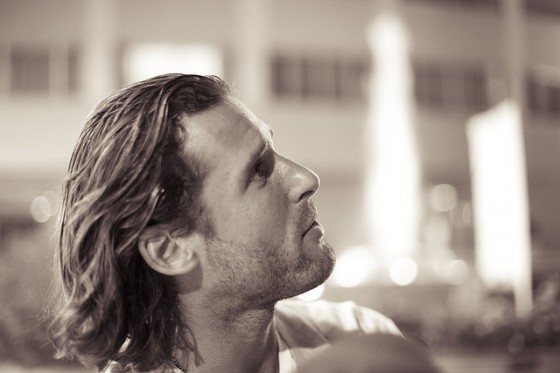 A National Geographic “emerging explorer,” David de Rothschild talks to Green Prophet about plastic, and how adventures inspire change and action.
A National Geographic “emerging explorer,” David de Rothschild talks to Green Prophet about plastic, and how adventures inspire change and action.
We wrote about the trip from San Fran to Sydney in a boat made from thousands of plastic bottles. And we reviewed the Plastiki book. Now we bring it all together in this exclusive interview with our favorite eco-adventurer David de Rothschild. Learn more about what inspires the man who makes loving and protecting nature an adventure to be shared.
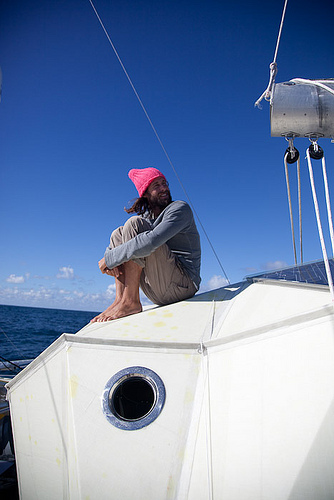
David. First things first. Please won’t you briefly tell our readers how you stumbled on the crazy idea of building a boat out of plastic bottles that you then entrusted to get you and a host of other intrepid adventurers from San Francisco to Sydney?
In June 2006 I read a report issued by UNEP called ‘Action Urged to Avoid Deep Trouble in the Deep Seas’ which alerted me to the fundamental issues facing our oceans.
After reading this and on further investigation I felt I had to do something. I wanted to create a compelling and pioneering adventure that would not only be informative but would capture the imagination of a global audience and empower them to act more responsibly towards our planet.
We wanted to promote a better understanding and respect for one of the most pressing ecological issues of our time; waste. Hence, the Plastiki was born.
How long did it take to build your 100% sustainable catamaran? And how many days did you spend at sea?
It took four years to design, develop, research, build and test the Plastiki. The journey from San Francisco to Sydney took 129 days.
I always believed that we would make it throughout the entire four years, even when others questioned it. For me the Plastiki has always been much more about the journey rather than just crossing the finish line, the focus remains to draw attention to the plastic waste littering our oceans and finding innovative solutions that can be utilised in everyday life as well as trying to influence companies, organisations and industries to be accountable and take responsibility – collectively the global community needs to work together to give nature a voice.
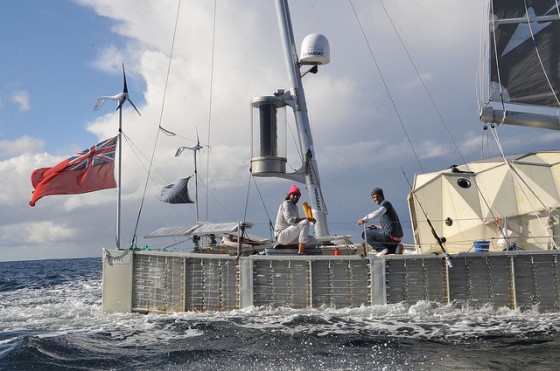 Scattered throughout your fantastic book Plastiki are deeply alarming facts related to plastic and how the accumulation of it impacts marine life (and ultimately us). Please tell us about the 5 gyres and why they are so serious.
Scattered throughout your fantastic book Plastiki are deeply alarming facts related to plastic and how the accumulation of it impacts marine life (and ultimately us). Please tell us about the 5 gyres and why they are so serious.
The issue is far more ominous than people imagine as it’s not just these floating islands of trash that people perceive them to be. The Pacific garbage patches are actually mainly subsurface, tiny pieces of material in the process of breaking down. When we got off the boat and looked underneath it to check the bottles, they were covered in a fine layer of plastic and if you run your fingers through the water as you’re sailing, you catch all these little bits in your hands.
It’s detrimental to the planet and to us because these little bits of plastic are toxic sponges and are floating in the first layer of the ocean where most species live and breed. Seeing that was pretty tragic. It’s hard for people to grasp because most people think of the sea in the context of beautiful, calm untouched oceans and although it still looks like this from above, just below the surface is this toxic stew that could quickly end up on our dinner plates.
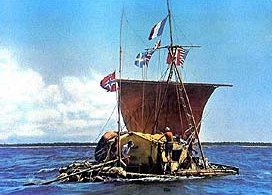 You often draw analogies between the Plastiki trip and Thor Heyerdahl’s Kon-Tiki adventure, by which yours was partially inspired. I was really disturbed by the amount of marine mammals each expedition encountered.
You often draw analogies between the Plastiki trip and Thor Heyerdahl’s Kon-Tiki adventure, by which yours was partially inspired. I was really disturbed by the amount of marine mammals each expedition encountered.
Can you tell us about this?
You’re right, one of the inspirations behind The Plastiki adventure was Thor Heyerdahl’s 1947 expedition, The Kon-Tiki, which saw Heyerdahl and five like-minded adventurers travelling to Peru where they built a replica of an ancient Inca raft from balsa wood and other native materials and sailed it across the Pacific to test his theories on early Peruvian settlements.
By putting his theories into practice in such an audacious and bold way Heyerdahl was able to raise phenomenal awareness and educate generations of people,
which is what we hope to achieve with The Plastiki, but within the context of the environment and the world’s oceans, highlighting the growing impact we are having on our most remote and fragile ecosystems.
The Kon-Tiki crew saw, caught and ate tuna daily and couldn’t enter the water for fear of sharks. Our expedition was very different, we caught 3 fish during the entire 3 months that we were at sea and only saw a handful of whales, sharks and dolphins.
The Plastiki trip wasn’t exactly “smooth sailing.” In fact, it was downright hard at times: getting along with people, waking up to a cold shift on the helm after sleeping only three hours, etc. Despite this, I get the sense that you would do it again in a heartbeat. How do you think adventures – even those experienced vicariously through Adventure Ecology expeditions – can help us live more consciously?

The mission of MYOO (Previously Adventure Ecology) is to captivate the imagination, motivate and ultimately activate. We do this through adventure. We take the issue and create a story primarily through expedition and exploration. The Plastiki expedition has been about promoting a better understanding and respect for one of the most pressing ecological issues of our time; waste.
I have always been fascinated first and foremost by health and the concept that you are what you eat, and you are what you breathe, which took me down the path of organics and understanding the environment that way. As I became more involved in organic farming I naturally became more curious about the environment as a whole and the ‘green space’ surrounding us, but when I started looking around for more information I found it all to be a bit aggressive and guilt mongering. Whereas the information would be interesting, I didn’t know what to do with it and would go away feeling a bit defeated and guilty in the face of all these problems rather than liberated to take positive action.
It was then during an expedition across the Antarctica in 2004 that it dawned on me how adventure can be utilized to create an alternative and accessible information platform on the environment and act as a catalyst for change. I felt that by taking these adventures and telling their stories, rather than allowing them to dissipate and be forgotten, it would allow the journey to continue resonating and build a community up and around them.
So it really was an organic process that essentially grew out of what I felt to be a gap in the market for information that was compelling, inspiring and informative but also inclusive and fun. I think that for so long the issue of ‘green’ was such an overwhelming concept and I wanted to take it out of that realm in order to captivate, engage and encourage a new community to get involved and take positive action for our Planet. We can make saving the planet an adventure.
What is the most important thing our readers should take from the Plastiki experience?
I hope that we’ve raised awareness of the waste that litters our oceans and shown the world that everyone can undertake their own adventures and make a difference.
(top image via david sifry, and Kon-Tiki via wikicommons; all others via plastiki flickr photostream)
More on David de Rothschild and Plastiki:
David de Rothschild Sails off in Plastiki
Book Review: Plastiki – Across the Pacific on Plastic
David de Rothschild Reponds to Oil Shale Plea

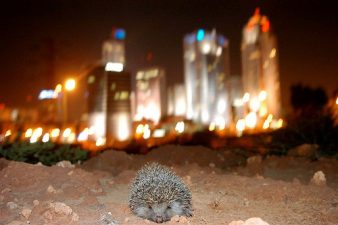
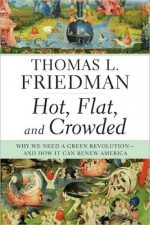
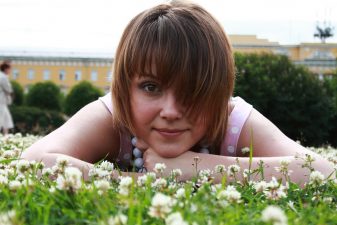
The Rothschild Dynasty makes money off of both sides of every war. World War I never should have happened but the Rothschild banking cartels wanted money and power plus an excuse to build a league of nations!